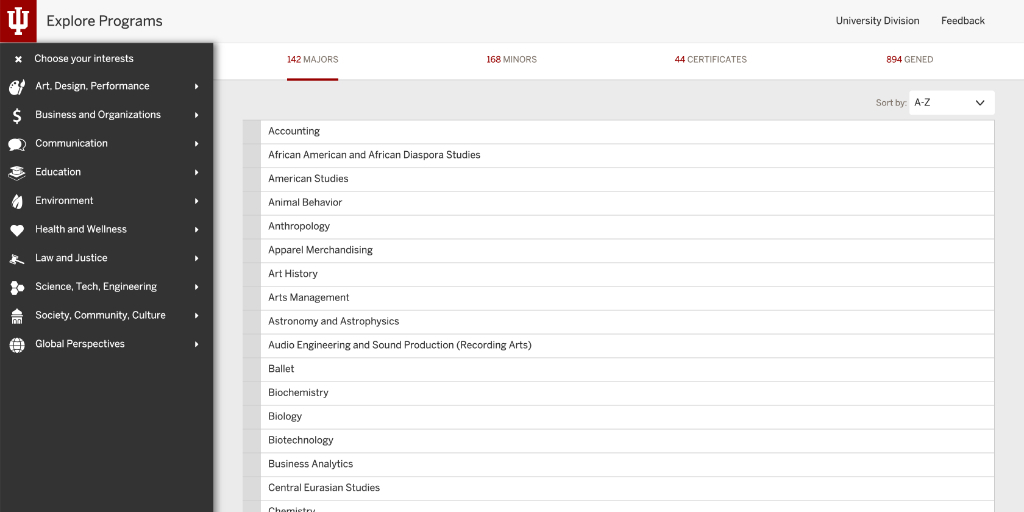Psychology Major Related Careers
The following careers are directly or indirectly related to the study of this major. Click the job title to learn more about it. To search for more career options, visit OnetOnline.org.
Psychology is a flexible major that offers two different possible degrees: the Bachelor of Science (B.S.) and the Bachelor of Arts (B.A.). Both of these degree options begin the same way making it easy for students to adjust their path as they discover their interests and goals. There are opportunities to pursue a concentration while pursuing either the B.S. or B.A. However, the B.A. focuses in areas such as human development, memory and cognition, animal behavior, clinical psychology, or social psychology while the B.S. emphasizes specializing in research for fields like health care, medicine, business, and education.
The B.A. covers the strategies and methods by which knowledge is acquired in modern scientific psychology. This includes concepts, theories, strategies, and tactics that apply to human behavior and skills like critical thinking, problem-solving, communication, and leadership
The B.S. is designed for students who are seeking a career in research or industry. In addition the broad coverage of the B.A. it also includes broad preparation in sciences and the development of math and computer skills.
For detailed information about this major and the degree requirements, visit the B.A. departmental website, and B.S. departmental website and the College of Arts and Sciences Academic Bulletin.
Talk with a coach about your questions related to this major, your interests, and your career goals.
Schedule an appointment
University Division's Explore Programs tool is the place to go for academic information about any IUB major, minor, or certificate.
Open in Explore ProgramsThe following careers are directly or indirectly related to the study of this major. Click the job title to learn more about it. To search for more career options, visit OnetOnline.org.
John Holland developed a theoretical framework consisting of six general themes that describe broad areas interest relating to self and the working world. If you are interested in discovering your career interests, visit our Learn more about yourself page to learn about the Strong Interest Inventory.
This major consists of the following themes:
Below is a sampling of skills related to this major mapped from the Skillscan Driver Assessment. The SkillScan assessment provides a simple 3-step process to help you learn about your strengths and weaknesses, the skills you enjoy and want to use in a career and those skills needing development. Consider taking the SkillScan assessment to better understand your skills as it relates to majors at IU.
Our unique IU Career Guides offers the A-Zs of each field’s preferred educational backgrounds, as well as employment opportunities and insider tips, industry-related interview questions, and a lot more. Below are related career guides for this major.